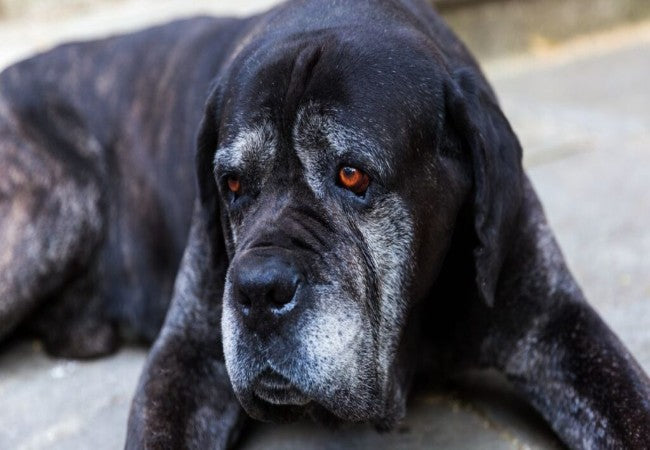2025 Vet Guide: Canine Thymus Tumor (Thymoma) Diagnosis, Treatment & Hope🐶🧠🩺

In this article
2025 Vet Guide: Canine Thymus Tumor (Thymoma) Diagnosis, Treatment & Hope🐶🧠🩺
By Dr. Duncan Houston BVSc
Hello caring pet parents! I’m Dr Duncan Houston BVSc. In this in-depth 2025 update, we explore canine thymomas—rare tumors of the thymus gland located in the chest. We'll cover causes, clinical signs, diagnostics, treatment, prognosis, and how Ask A Vet, provide compassionate support every step of the way 🩺.
1. What Is a Thymus Tumor?
A thymoma originates from the epithelial cells of the thymus gland in the cranial mediastinum. It’s uncommon—affecting around 1% of dogs, most frequently middle-aged to older (9–11 years), especially larger breeds like Labradors and German Shepherds.
2. Causes & Types
- Cause: Unknown—no clear genetic or environmental trigger.
- Types: Benign (encapsulated) and invasive. Rarely turns into thymic carcinoma.
- Histologic subtypes: Lymphocyte-rich, epithelial, mixed (WHO A/B types).
3. Clinical Signs 🩺
- Coughing, labored breathing, and exercise intolerance due to mass effect.
- Swelling of the head, neck, and front limbs (cranial vena cava syndrome).
- Regurgitation or vomiting, often associated with myasthenia gravis–induced megaesophagus.
- Polyuria/polydipsia (from hypercalcemia), along with weight loss, decreased appetite, and lethargy.
4. Diagnostic Steps 🔍
- Full physical exam, including chest auscultation.
- Bloodwork: CBC, biochemistry (especially calcium).
- Thoracic imaging: X-rays (show mediastinal mass, megaesophagus), ultrasound, and advanced imaging (CT/MRI) for staging and surgical planning.
- Cytology (FNA) or biopsy to distinguish thymoma from lymphoma.
- Test for myasthenia gravis: acetylcholine receptor autoantibodies or Tensilon test.
5. Treatment Options in 2025
a) Surgery (Thymectomy)
Open-chest surgery (sternotomy or VATS) is first-line for resectable tumors. Prognosis is excellent for benign, well-encapsulated masses: >80 % 1-year survival.
b) Radiation Therapy
For non-resectable or invasive tumors, radiation yields ~75 % response rates. Advanced SRS (1–3 sessions) or conventional radiation (18–21 sessions) are effective options.
c) Medical Management
Steroids like prednisone may shrink lymphocyte-rich thymomas temporarily; chemotherapy plays a limited role.
d) Supportive Care
- Treat underlying myasthenia gravis (e.g., anticholinesterases, immunosuppressants).
- Manage megaesophagus with upright feeding, frequent small meals.
- Treat aspiration pneumonia promptly with antibiotics.
- Control hypercalcemia if present.
6. Prognosis & Monitoring
| Approach | Median Outcome | Notes |
|---|---|---|
| Surgery (non-invasive) | Excellent (≥ 80 % survive 1 yr) | Recurrence in ~30 %; surgery still effective again |
| Radiation alone | Good response (~75 %) | Prolonged survival and symptomatic relief |
| Surgery + radiation | Very favorable | Best choice for invasive tumors |
| Medical/palliative | Guarded to poor | 20–30%] life-limiting symptoms |
7. Post‑Treatment Care & Follow-Up
- Recheck imaging every 3–6 months to monitor recurrence.
- Manage associated conditions (myasthenia gravis, aspiration pneumonia, hypercalcemia).
- Medication monitoring and symptomatic support as needed.
8. How Ask A Vet Support You 💡
- Ask A Vet: 24/7 expert guidance—monitor breathing, tumor-related symptoms, and schedule follow-ups.
9. Prevention & Wellness
- Annual wellness exams and thoracic auscultation/imaging for at-risk breeds.
- Monitor weight, activity, and respiratory function in middle-aged and older dogs.
- Promptly investigate respiratory or swallowing issues.
10. Emotional Support for You & Your Dog ❤️
A thymoma diagnosis is stressful, but with clear decisions, expert monitoring, and supportive tools from Ask A Vet, you can manage it confidently. Connect with vet-support groups—many families navigate this journey and emerge stronger together.
11. Final Thoughts
Canine thymomas are rare but often treatable. Early detection followed by surgery—or radiation for invasive cases—yields strong outcomes. Paraneoplastic conditions like myasthenia gravis and megaesophagus require vigilant management. Use the full continuum of care: advanced diagnostics, targeted therapy, post-treatment monitoring, and compassionate aid from Ask A Vet to give your dog the best chance at a full, comfortable life 🐶✨.
— Dr Duncan Houston BVSc
For continued support, visit AskAVet.com and download the Ask A Vet app today!






